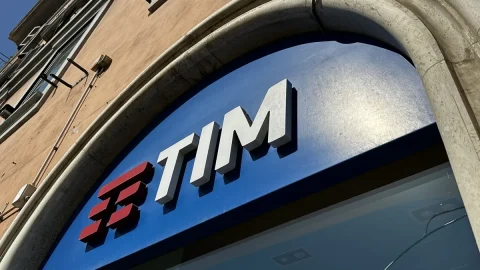"With over 1.800 active construction sites, some of which are very large and which have never stopped during the pandemic, the FS Italiane Group it is the first investor in Italy and a great engine for the development of the country” underlined Gianfranco Battisti, CEO of the FS Group recently, speaking on “Ey Capri 2020”. FS Italiane is in fact implementing the 2019-2023 Business Plan on time with visible repercussions on the economic and social level but also on the profitability level, if we consider that the results of recent times are "the best in the 180 years of our history".
The strategic works with a strong impact on the progress of railway projects are fundamental, among which particular attention deserves above all the Third Pass of Giovi, the new Brescia Est-Verona high-speed line, the fast Palermo-Catania-Messina connection and the Naples-Bari line. The new interventions concern both the North and the South of Italy, but 16 billion euros are earmarked for the 2019-2023 Industrial Plan for road and railway infrastructures in the South alone. But let's see, point by point, the four interventions that deserve particular attention.
In the line upgrade plan Milan-Genoa, the construction of 53 km is planned, of which 37 km in tunnels, for an investment of over 6,8 billion euros. At the heart of the project is the new double-tube Valico tunnel, for a total extension of 27 km.
In particular, the work fits into the Core Corridor TEN-T Rhine-Alps, one of the axes of the strategic trans-European transport network. Currently, 2 important works in the tunnel have been completed: the excavation of the section of the pass that connects the north entrance with the well of the Radimero construction site and the excavation of the equal track of the Serravalle natural tunnel.
For Battisti "the implementation of the Third Pass is worth about one point of GDP for the area, it will employ 10 thousand people and its construction represents a concrete response to build what will be a better Italy". The Third Pass of the Giovi will allow to give a new economic impulse to Liguria and Piedmont and, once the work is completed, it will take just over an hour to reach Milan from Genoa or vice versa.
Another important project in the North on which the FS Italiane Group is aiming is the new HS/HC Brescia Est-Verona railway line. A railway track of about 48 km that will connect 3 major European corridors: the ports of the South of the Iberian Peninsula with the Ukrainian border, passing through the South of France, Northern Italy and Slovenia, with a section in Croatia.
The HS/AC Brescia Est-Verona line crosses 2 Regions (Lombardy and Veneto) e Common 11 in the provinces of Brescia, Verona and Mantua (the latter only for road works). For a value of 3,4 billion euros, this work will make circulation more fluid and will increase the traffic capacity in the railway junctions of Brescia and Verona, going to "radically change the connection system of Northern Italy which will allow the growth of GDP, employment, related industries and the revisitation of the stations” said Battisti, according to which “the work will also mark the kick-off of the 2026 Winter Olympics”.
As for the South, FS Italiane is trying to fill historical infrastructure gaps both with program contracts with the Government and with “investment projects such as the lengthening of the high-speed line from Salerno to Reggio Calabria.
As for Sicily, the FS Group has fielded 13 billion euros of which 9,3 billion for the new fast Palermo-Catania-Messina connection, aimed at improving the standards of regularity, punctuality and safety of railway traffic on the island. Confirming the centrality that this Region has in the Group's investment plan.
The interventions in progress and those planned along the Messina-Catania-Palermo itinerary will make it possible to increase speed up to 250 km/h, thus reducing journey times: the Messina-Catania journey will be covered in 45 minutes (against 70 minutes today) and the one between Catania and Palermo in one hour and 50 minutes (one hour less than current times) .
Relations with the main air and sea transport terminals and with the road/rail interchange nodes will also benefit. The Palermo-Catania-Messina connection is an integral part of the European corridor TEN-T Scandinavian-Mediterranean which, starting from Helsinki, arrives in Sicily through the AV / AC.
Finally, the strengthening and speeding up of the Naples-Bari itinerary, included in the Scandinavia-Mediterranean Corridor of the trans-European network, is the first step for a broad process of integration and support for the socio-economic development of the heart of Southern Italy. 2 areas representing 40% of southern production will be connected, with an investment of 6,2 billion.
The redevelopment of the route Rome-Naples-Bari (of which RFI del Gruppo FS is the client) will make it possible to speed up connections, increase the offer of rail transport and improve accessibility to the service. The Naples-Bari journey will be covered in 2 hours (against the current 4), while the one between Rome and Bari in 3 hours (saving almost 2 hours compared to the current journey).
The FS Italiane Group has already changed the face of modern Italy with high-speed rail but today it can do more with the implementation of investments in certain times that strengthen connections to the North and South and between North and South, in a vision general which increasingly links Italy to Europe and which does not lose sight of the priority of development and job creation, never as important as in these times of recession.





